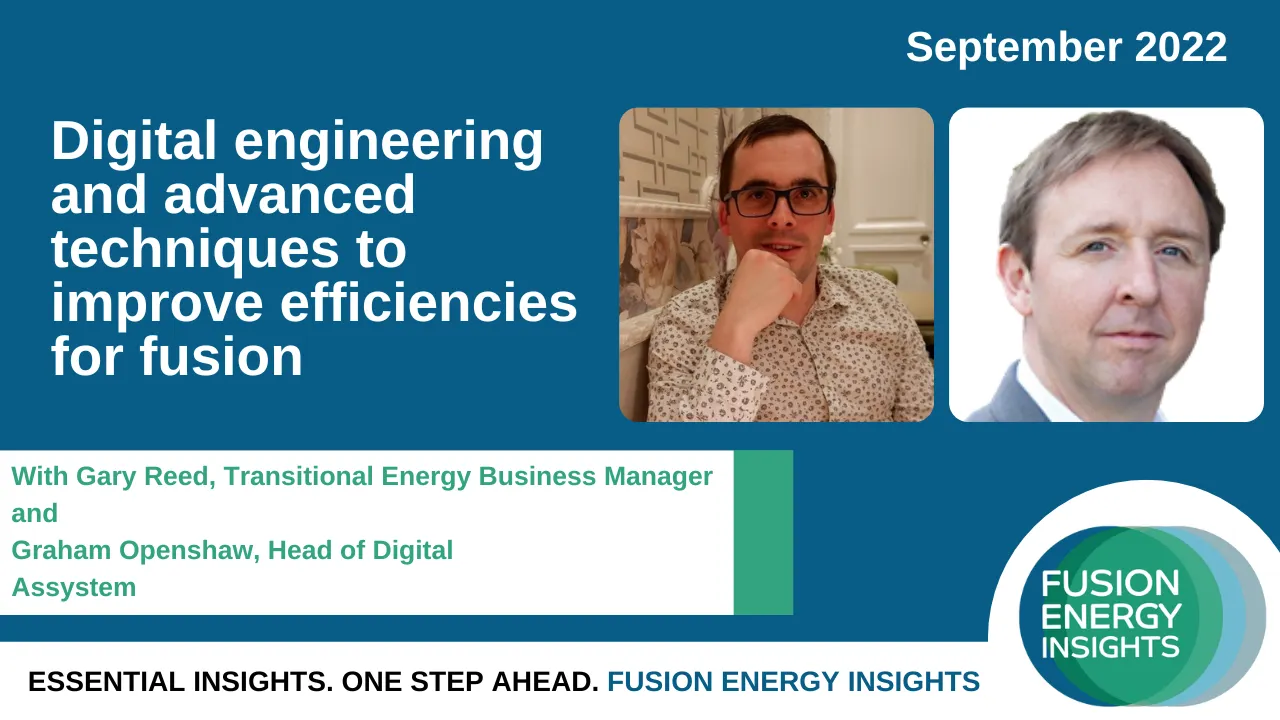Digital Engineering and advanced techniques to improve efficiencies for commercial fusion
In this monthly session, Gary Reed, Energy Transition Business Manager at Assystem, together with Graham Openshaw, Head of digital at Assystem, discuss what role digital engineering will play in commercialising fusion.

Gary Reed is the Transitional Energy Business Manager for Assystem, with over 16 years of experience in low carbon engineering including fusion, renewables and conventional nuclear. Gary's is a Chartered Engineer with a technical grounding in design, structural integrity and safety & reliability assessments. He now leads operational management of Assystem's customers and projects for fusion, hydrogen and renewable energy customers in the UK.
Gary and Graham highlighted the complementary role that digital solutions can play in driving efficiencies and improving safety and reliability in fusion. In this members-only session, they explored some of the ways in which digital solutions are already transforming fusion energy projects and how they could contribute further to the development of digital technologies, which includes digital twins, machine learning, AI and info management.
Here are three insights taken from the event:
1 Digital engineering plays a great role in helping get fusion to commercialisation
Digital engineering and advanced techniques can help progress fusion in two main ways: first, they can help to overcome scientific and technical hurdles which must be overcome to achieve net fusion gain. Secondly, they can aid in making fusion a commercially viable and highly competitive source of energy.
According to Gary Reed, it is important that “we don’t take our eye off the longer-term challenge of quite mundane run-of-the-mill general engineering challenges like how do you manage the life cycle cost.”
2 These early stages of fusion make using digital engineering more viable
Fusion is still early in its commercial development, and many fusion projects are still early in their lifecycle. Because of this, fusion is a great field to use digital engineering, since it is still easy to change to these solutions, and the payoff in the long term is significant. Smaller more agile fusion projects will find it easier to switch to advanced digital engineering.
3 Good information management is key to successful fusion projects
Although there are many flashy and novel aspects of digital engineering, the more mundane tool of good information management will have the greatest impact on cutting timescales and reducing costs. The challenge is that in making these changes you don’t see the benefits until much later, which means that it’s not urgent and likely to get passed over. Large-scale projects such as nuclear fission reactors have suffered from this in the past.
A full pdf summary of key insights, plus the Q&A event replay, is available to Game Changer members of Fusion Energy Insights. Join us now for full access to all the insights.
